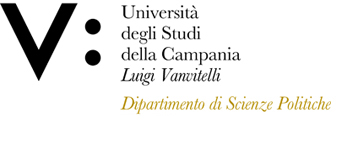Serena SANTIS
Insegnamento di RESPONSABILITÀ SOCIALE D’IMPRESA E RENDICONTAZIONE
Corso di laurea magistrale in PROGETTAZIONE E GESTIONE DEI SISTEMI TURISTICI
SSD: SECS-P/07
CFU: 6,00
ORE PER UNITÀ DIDATTICA: 36,00
Periodo di Erogazione: Secondo Semestre
Italiano
| Lingua di insegnamento | ITALIANO |
| Contenuti | Il Corso ha l’obiettivo di trasferire ai discenti le conoscenze e le competenze per comprendere le informazioni di carattere non finanziario presenti nei report aziendali. In particolare, sarà trattata l’informativa non finanziaria di carattere obbligatorio e di carattere volontario. |
| Testi di riferimento | 1) Economia Aziendale, a cura di L. Potito, Giappichelli, quarta edizione interamente riveduta ed ampliata, 2020, cap 10 |
| Obiettivi formativi | 1. Conoscenza e capacità di comprensione (knowledge and understanding). |
| Prerequisiti | Nessuno |
| Metodologie didattiche | Le attività didattiche sono costituite da lezioni frontali su argomenti teorici e discussione di report tratti dalla realtà aziendale (36 ore) |
| Metodi di valutazione | La valutazione dello studente prevede una prova scritta espressa trentesimi. |
| Altre informazioni | Le lezioni frontali sono supportate da slides e altro materiale a cura del docente su specifici argomenti. |
| Programma del corso | Informativa non finanziaria di carattere obbligatorio (3 CFU): |
English
| Teaching language | Italian |
| Contents | The course aims to transfer the knowledge and skills to understand the non-financial information present in company reports. In particular, non-financial information of a mandatory and voluntary nature will be treated |
| Textbook and course materials | 1) Economia Aziendale, a cura di L. Potito, Giappichelli, quarta edizione interamente riveduta ed ampliata, 2020, cap 10 |
| Course objectives | 1. Knowledge and understanding. The student must demonstrate that they have at least sufficient knowledge of the topics indicated in the program and that they have the ability to understand the topic, with regard to the non financial information being in the different reports. |
| Prerequisites | not required |
| Teaching methods | The activities consist of the presentation of theoretical topics through lectures, individual and group exercises on application aspects and discussions of business cases with exercises and business cases also supported by material taken from the reality of the companies. |
| Evaluation methods | The assessment includes a written test expressed in thirtieths. The written test is structured with open-ended questions. It is considered passed in the event of a positive response to 60% of the tests / problems submitted. In evaluating the exam, the determination of the final grade takes into account the following elements: |
| Other information | Lectures are supported by slides and other material by the teacher on specific topics. |
| Course Syllabus | Compulsory non-financial information (3 CFU): |








